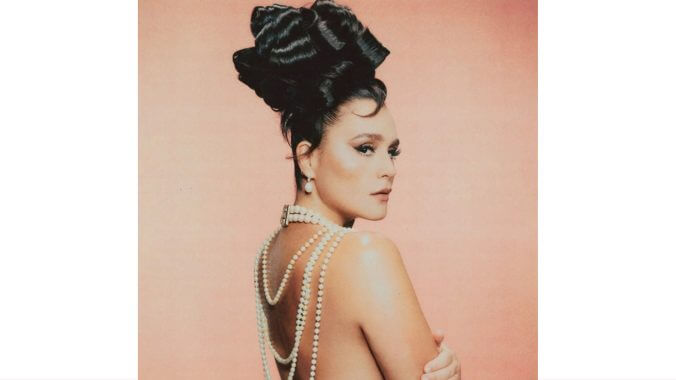Jessie Ware Finds Her Pleasure on That! Feels Good!
On her stellar fifth album, the English pop icon doubles down on disco

We all know the story by now: 2020, a year of isolation, was also home to some of the most upbeat and dance-floor-ready pop music in recent memory. It’s an irony that feels draining to even bring up. Still, a year of empty clubs ended in a bolstered string of fabulous albums that drew on the luscious excesses of disco. Jessie Ware had a particularly banner year. Her fourth album, What’s Your Pleasure?, was grounded in the powers of love and human connection through a sense of urgency.
Ware got her start as a backup singer for fledgling club acts, befriending the members of Disclosure and hopping on songs with Sampha and SBTRKT. Despite her dance music roots, her run of albums from her 2012 debut Devotion to 2017’s Glasshouse trafficked in a trendy—if not anonymous—blend of R&B, soul and sophisti-pop. Her disco pivot on What’s Your Pleasure? was a gamble that paid off in spades, revitalizing a career that had plateaued; an inviting, undulating club-pop record that found Ware taking you by the hand and leading you into a crowd. It’s seductive, but at a distance; a demure smile from across the room. Even its title is uncertain, asking what might come next.
Her new album—and its title—act as an emphatic answer. On That! Feels Good!!, Ware casts aside any measure of modesty, transforming her disco den mother persona into the epitome of pleasure and excess. What’s Your Pleasure? made the promise of connection explicit—telling her conquests she “see[s] the future / It’s me and you”—but let fantasies linger. That! Feels Good! trades in innuendo for explicit detail. Pearls may have been worn to Ware’s soiree, but they’re scattered to the floor now, costly collateral. Part Madonna’s Confessions on a Dance Floor, part Countess LuAnn’s “Money Can’t Buy You Class,” That! Feels Good! is a record of sterling, mirrorball-lit songs and bawdy lyricism. It’s Ware’s finest collection of work to date.
Lead single “Free Yourself,” is one of Ware’s most immensely powerful songs yet. Embellished with striking keys and horns, it builds gradually, finally unleashing a larger-than-life chorus commanding you to let loose: ”Don’t stand there waiting all of your life / For the night to come and find you.” The backing vocals sound like a packed dance-floor echoing Ware’s demand back to her.
Similarly grand is the title track. The placement of exclamation points makes sense, as “That! Feels Good!” begins with a collection of breathy voices reciting the phrase over and over. Among these voices are Kylie Minogue, comedian Aisling Bea and actor Jamie Demitrou. Once they’ve said their piece, the song rips open. An impossibly cool, grooving bass line sits at the center, as Ware delivers the record’s thesis: a shout to the sky, “pleasure is a right.” Often, Ware’s verses are not unlike the rap on Blondie’s “Rapture.” It’s corny, but that doesn’t matter. The song is enough of a romp to make up for it.
-

-

-

-

-

-

-

-

-

-

-

-

-

-

-

-

-

-

-

-

-

-

-

-

-

-

-

-

-

-

-

-

-

-

-

-

-

-

-

-








































